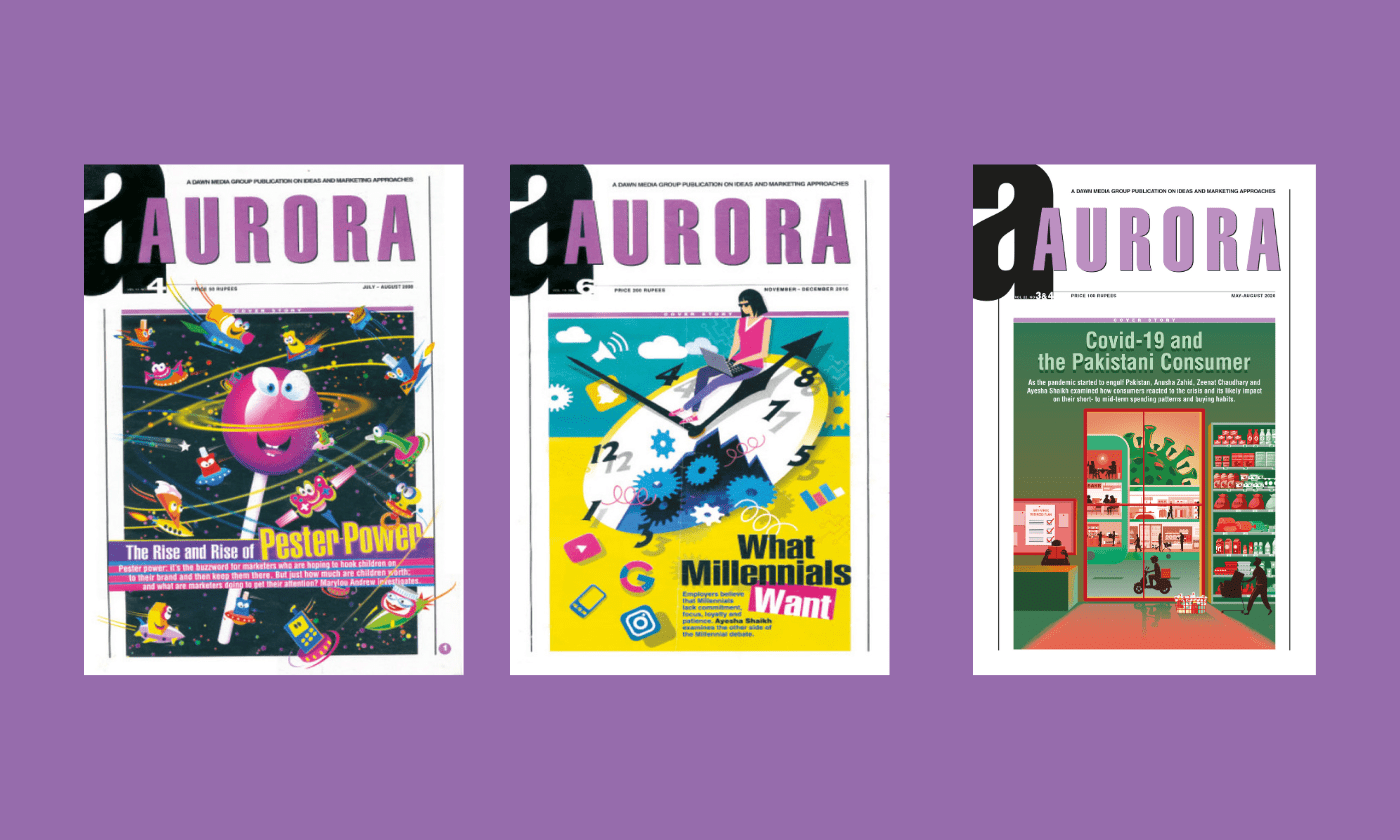What Pakistanis Want
Over the last two decades, the Pakistani consumer has shifted dramatically, from a passive audience tuned into television jingles and family-centric messages to a fragmented, discerning population navigating multiple digital platforms. This transformation is most visible when we look at how Aurora has covered children in advertising in the early 2000s, and later on Millennials and Gen Z.
In the late nineties and early 2000s, children were little more than background players in the advertising narrative, mostly shown dancing in powdered milk commercials. But as media access widened and private channels emerged, children became more than just cute faces on screen – they became influencers within their households. Brands began to recognise their purchasing sway, not just through direct appeals, but by telling stories through their lens. Campaigns like Surf Excel’s emotional stories showed children not as exaggerated characters, but as a way to share empathy and values, speaking to both parents and children.
As that generation grew up, it gave rise to Pakistani Millennials – the country’s first truly digital generation. Coming of age with the internet, private television channels, mobile phones, and eventually social media, Millennials developed a strong radar for inauthenticity. They wanted stories that resonated with their lived experiences, not glossy promises. They valued consistency and meaning. For this generation, advertising needed to be more than catchy slogans or hashtags; it had to offer genuine relevance. Brands that speak at them miss the point. They want dialogue, inclusion, and cultural resonance. They will switch loyalty in a heartbeat if a brand doesn’t align with their values or fails to keep its promises. But just when marketers thought they had cracked the code, along came Gen Z and rewrote the rulebook entirely.
Born into a hyper-connected world, Gen Z doesn’t just consume content; they co-create it. They live between screens and reality, curating their identities across Instagram, TikTok and YouTube while grappling with rising inflation, climate anxiety and a hunger for change. They are deeply aware of their personal brand and hyper-conscious of how they are perceived online.
Gen Z expects brands to be transparent, socially aware, and aligned with the causes they care about – whether it is sustainability, mental health, or equality. They don’t want to be spoken down to, and they are quick to call out performative activism or tone-deaf messaging. Aesthetics matter, but so does intention. A beautifully shot ad won’t land unless it feels honest. In many ways, Gen Z brings a level of complexity that challenges brands to not only innovate but also self-reflect. And while both Millennials and Gen Z approach the world differently, what unites them is a desire for meaningful engagement.
Brands in Pakistan can no longer afford to treat youth marketing as a seasonal campaign. They must invest in understanding these audiences as individuals navigating economic, emotional and digital landscapes all at once. In this new era, successful marketing is less about reach and more about relevance, and the brands that learn to listen will be the ones that lead.
From Aurora’s archives
INTERVIEWS

PROFILES


ARTICLES








Comments (0) Closed